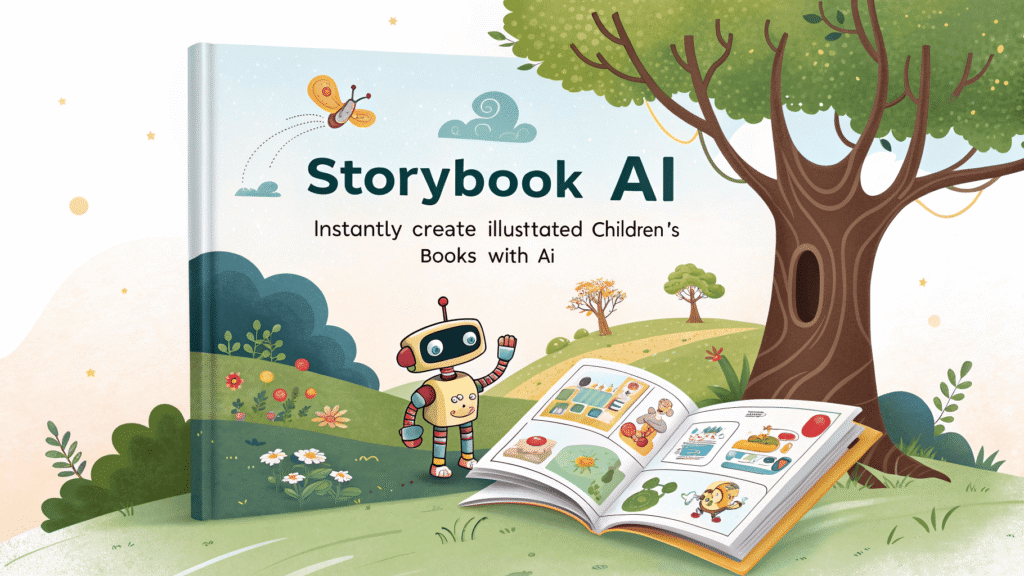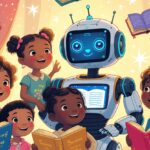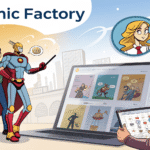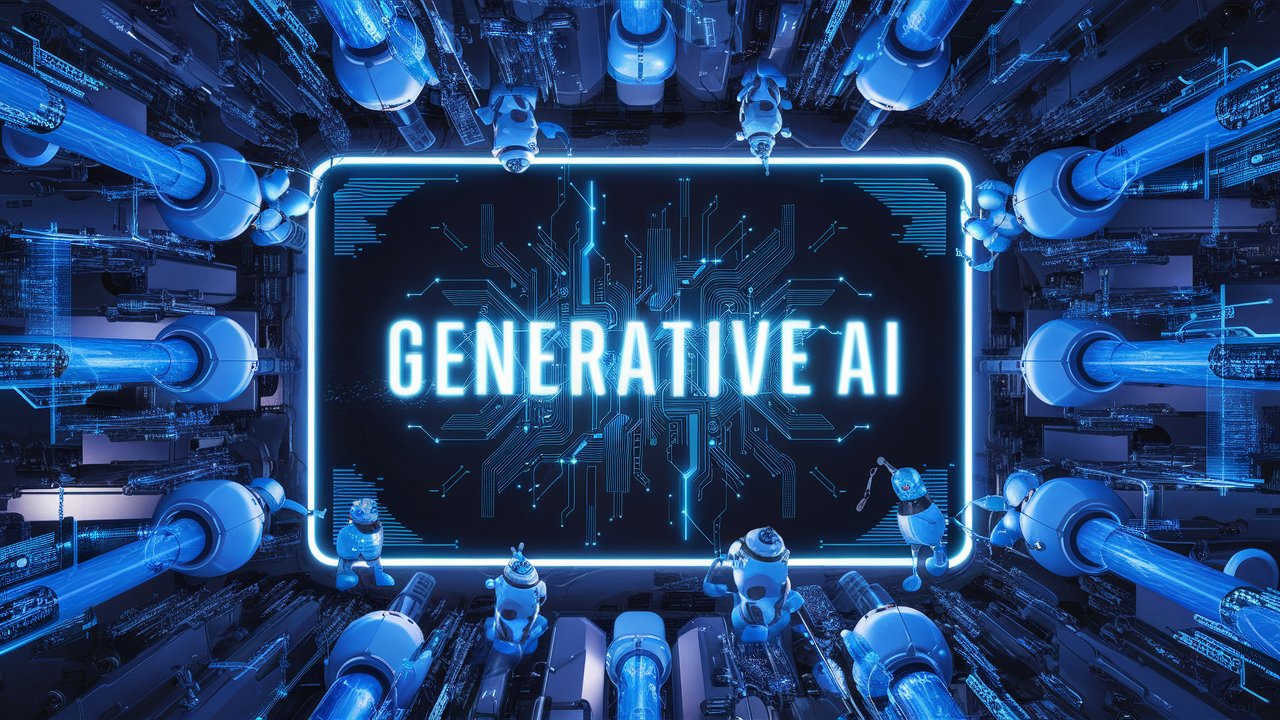
Gone are the days when creating a children’s book required months of writing, professional illustrators, and hefty publishing budgets. Artificial intelligence has revolutionised the creative industry, and children’s literature is no exception. StoryBook AI platforms now empower parents, teachers, educators, and aspiring authors to craft beautifully illustrated children’s books within minutes rather than months.
This technology combines advanced natural language processing with sophisticated image generation to produce engaging stories complete with vibrant illustrations. Whether you’re a parent wanting to create a personalised bedtime story featuring your child as the protagonist, or an educator developing custom learning materials, AI-powered storybook creation opens up endless possibilities.
The rise of these platforms represents more than just technological advancement—it’s democratising creativity and making storytelling accessible to everyone, regardless of artistic ability or publishing experience.
How StoryBook AI Technology Works
StoryBook AI platforms operate through a sophisticated combination of large language models and generative image AI. When you input a story concept, character description, or simple prompt, the system processes this information through multiple AI models working in tandem.
The text generation component analyses your input and creates a coherent narrative structure, developing characters, plot progression, and age-appropriate dialogue. Meanwhile, the image generation system interprets key story elements to produce illustrations that match the narrative’s tone, setting, and characters.
Most platforms offer style customisation options, allowing users to choose from various artistic approaches—from watercolour paintings to cartoon illustrations, realistic photography to whimsical drawings. The AI maintains visual consistency throughout the book, ensuring characters look the same across different scenes and illustrations complement the story’s mood.
Advanced platforms also incorporate educational psychology principles, tailoring language complexity and story structure to specific age groups. This ensures the final product isn’t just visually appealing but also developmentally appropriate and engaging for young readers.
Key Features of Modern StoryBook AI Platforms
Personalisation Capabilities
The most compelling feature of StoryBook AI is its ability to create highly personalised content. Parents can input their child’s name, appearance, interests, and even specific life experiences to create truly unique stories. This level of customisation transforms reading from a passive activity into an immersive experience where children see themselves as the hero of their own adventure.
Multiple Language Support
Leading platforms support dozens of languages, making it possible to create bilingual books or stories in a child’s native language. This feature proves particularly valuable for families wanting to preserve cultural heritage or help children learn new languages through engaging narratives.
Educational Integration
Many StoryBook AI platforms incorporate learning objectives into their story generation. Teachers can create books that reinforce specific curriculum topics, from basic mathematics and science concepts to social-emotional learning themes. The AI can weave educational content seamlessly into entertaining narratives.
Print and Digital Options
Generated books can typically be exported in multiple formats—high-resolution PDFs for professional printing, ePub files for digital reading, or interactive formats for tablets and smartphones. This flexibility ensures stories can be enjoyed across different mediums and shared easily with family and friends.
Benefits for Different User Groups
Parents and Families
For parents, StoryBook AI offers an opportunity to create meaningful, lasting memories with their children. Custom stories can address specific challenges a child might be facing—starting school, welcoming a new sibling, or overcoming fears. The personalised nature of these stories often makes them more effective than generic books at conveying important messages or providing comfort.
Parents also appreciate the cost-effectiveness. Professional children’s book illustration can cost thousands of pounds, making custom books financially impossible for most families. AI democratises this process, allowing anyone to create professional-quality illustrated books for a fraction of traditional costs.
Educators and Schools
Teachers find StoryBook AI invaluable for creating curriculum-specific content. Rather than searching for books that approximately match their lesson plans, they can generate stories that precisely address learning objectives. A science teacher might create a story about a character exploring the solar system, while a social studies teacher could develop narratives about different cultures or historical periods.
The technology also supports differentiated learning. Teachers can create multiple versions of the same story at different reading levels, ensuring all students can engage with the content regardless of their current abilities.
Aspiring Authors and Publishers
For individuals interested in children’s book publishing, AI tools provide an accessible entry point. Authors can rapidly prototype ideas, test different narrative approaches, and create professional-looking samples without significant upfront investment. This capability accelerates the creative process and reduces barriers to entry in the competitive publishing market.
Creative Applications and Use Cases
Therapeutic Storytelling
Mental health professionals and therapists increasingly use personalised stories as therapeutic tools. StoryBook AI can create narratives that help children process difficult emotions, understand complex family situations, or develop coping strategies for anxiety or trauma. The familiar format of a children’s book provides a safe, non-threatening way to explore challenging topics.
Cultural Preservation
Families and communities use these platforms to preserve cultural stories, traditions, and languages. Grandparents can collaborate with AI to document family histories in engaging, illustrated formats that children will actually want to read and remember.
Special Occasions and Gifts
Custom storybooks make memorable gifts for birthdays, holidays, or milestone events. Parents create graduation stories, adoption narratives, or moving-day adventures that help children understand and celebrate significant life changes.
Business and Marketing Applications
Some companies use StoryBook AI for marketing purposes, creating branded children’s content that subtly promotes products or services while providing genuine entertainment value. Educational toy companies, for example, might create stories featuring their products in realistic play scenarios.
Considerations and Limitations
While StoryBook AI offers remarkable capabilities, users should understand its limitations. The technology excels at generating content based on common patterns and themes but may struggle with highly unusual or complex narrative requests. The AI’s training data influences its output, potentially leading to certain biases or limitations in cultural representation.
Quality can vary significantly between platforms. Some produce professional-grade illustrations and well-structured narratives, while others generate inconsistent or lower-quality content. Users should evaluate different options carefully and consider their specific needs and quality expectations.
There’s also the question of creative authenticity. While AI-generated books can be highly engaging and valuable, they represent a different type of creative expression than traditional human-authored works. Parents and educators should consider how to balance AI-generated content with human-created stories in children’s reading diets.
Choosing the Right Platform
When selecting a StoryBook AI platform, consider factors like ease of use, customisation options, output quality, and pricing structure. Some platforms charge per book, while others offer subscription models with unlimited generation. Free tiers often provide basic functionality but may include watermarks or limited customisation options.
Look for platforms that offer preview capabilities, allowing you to assess quality before committing to a purchase. User reviews and sample galleries can provide insights into the consistency and appeal of generated content.
Consider your primary use case as well. Platforms designed for educators might offer different features than those targeting parents or aspiring publishers. Some specialise in specific age groups or story types, while others provide broader, more general capabilities.
The Future of AI-Powered Storytelling
StoryBook AI represents just the beginning of artificial intelligence’s impact on children’s literature and creative content. Future developments may include interactive stories that respond to reader choices, voice narration that matches the original author’s style, or augmented reality features that bring illustrations to life.
As the technology continues advancing, we can expect improvements in narrative sophistication, visual quality, and personalisation capabilities. The integration of educational assessment tools might allow books to adapt in real-time based on a child’s comprehension and engagement levels.
The democratisation of creative tools through AI technology opens up unprecedented opportunities for personalised, meaningful content creation. While it cannot replace the human creativity and emotional depth of traditional storytelling, it provides powerful new tools for parents, educators, and creators to engage children’s imaginations and support their development.
StoryBook AI platforms offer an exciting glimpse into the future of personalised education and entertainment, where every child can be the hero of their own story, perfectly tailored to their interests, needs, and dreams.

I am Ray Jones Digital
My current occupations: a Digital Marketer, Local SEO expert, Link Builder, and WordPress SEO specialist. Shopify SEO, Ecommerce Store Management, and HTML & WordPress Developer I have been practicing the above mentioned services for more than 10 years now As an SEO expert working with your ongoing projects.



